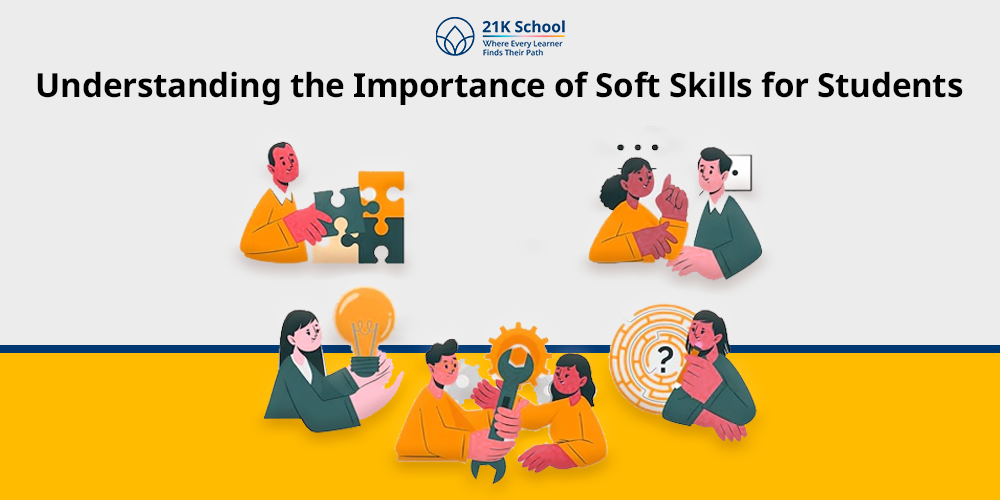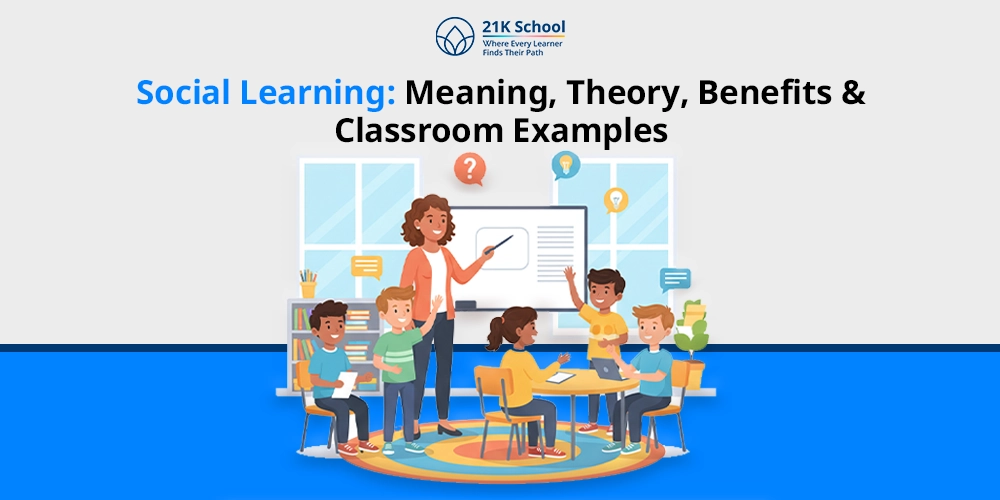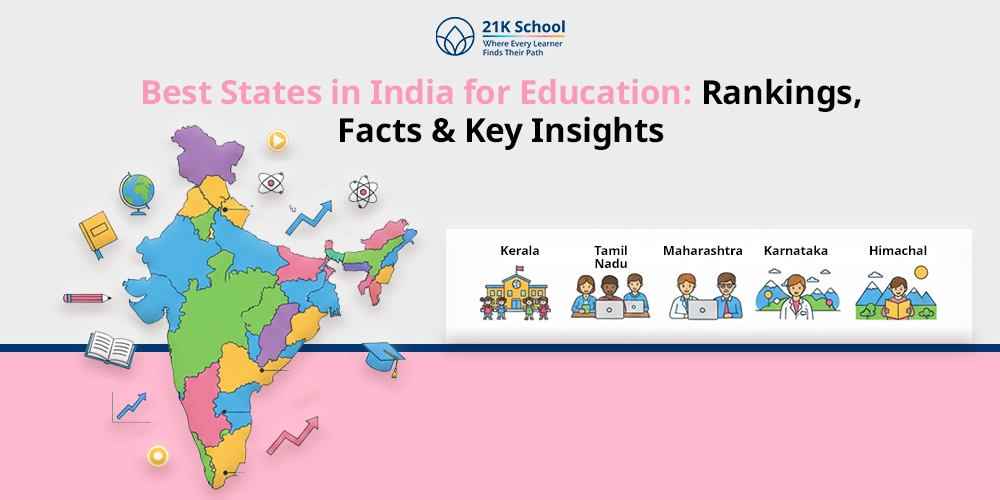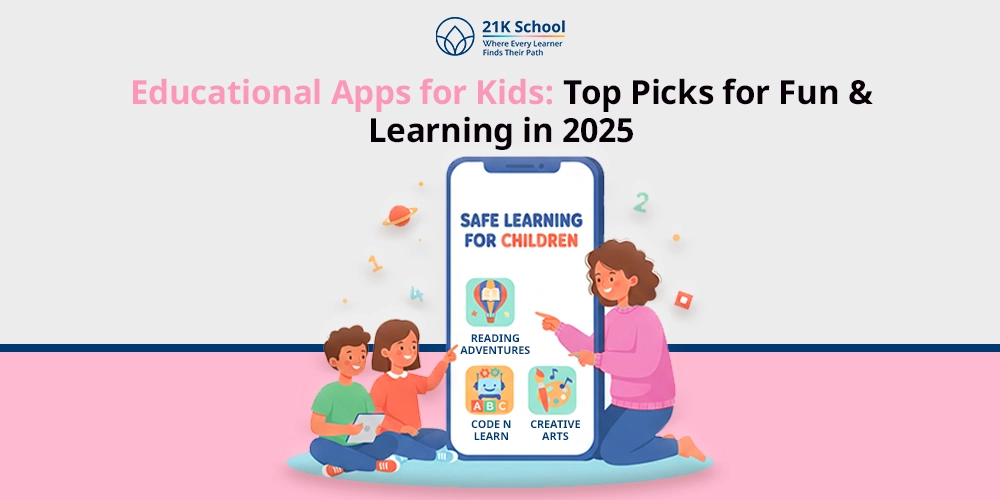
Have you ever wondered why soft skills are necessary in the life of a student?
In the modern world of dynamic changes, education no longer involves textbooks and tests. Academic knowledge can only serve as a good foundation, but what makes a student successful in life is the development of soft skills .
Soft skills are personal attributes that help people to communicate positively with other people, collaborate, adapt and lead others, and understand and manage emotions.
These skills are essential to students, as they can help a student succeed in school, their personal life, and their future career. Not only do they boost confidence and creativity but also equip students to approach life’s challenges with a positive attitude and with good interpersonal skills.
Contents
- 1 What are Soft Skills?
- 2 The Top 13 Importance of Soft Skills for Students
- 2.1 1. Develop Teamwork
- 2.2 2. Enhance Problem-Solving Skills
- 2.3 3. Promotes Leadership
- 2.4 4. Inculcates Emotional Intelligence
- 2.5 5. Make Adaptability
- 2.6 6. Improve Critical Thinking Skills
- 2.7 7. Boost Creativity
- 2.8 8. Promotes Confidence
- 2.9 9. Enhance Time Management Skills
- 2.10 10. Conflict Resolution
- 2.11 11. Inculcates Self Awareness
- 2.12 12. Develop Empathy
- 2.13 13. Presentation skills
- 3 Conclusion
What are Soft Skills?
The soft skills refer to individual attributes, social skills and emotional characteristics that help one to relate with others successfully and in harmony. Soft skills, as opposed to hard skills, are communication, flexibility, problem-solving , and emotional intelligence skills that are job-specific or technical.
They assist people to articulate their ideas, cooperate in teams, cope with stress and maintain strong relationships. These abilities are very important in developing the personality of a student and overall development.
They assist the students to use their time effectively, deal with difficulties with confidence, and cooperate effectively with peers and teachers.
Having good soft skills not only equips students with a conducive environment with regard to their academic success but also allows them to be equipped to deal with the work environment in the future, as well as the social atmosphere.
The Top 13 Importance of Soft Skills for Students
Soft skills are the life skills that determine the personality of a student, relations, and future career achievements of the student.
Soft skills are necessary for students as they teach students teamwork, leadership skills , among others, enhance better problem-solving skills , and help students become more adaptable. The importance of soft skills among students is discussed below.
1. Develop Teamwork
Among the most critical soft skills of students is teamwork. It is a skill of being able to cooperate with others in order to attain the shared goals. Students in a school or college environment will find themselves doing group activities, group discussions, sports and extra-curricular activities and teamwork is a prominent feature in such cases.
Working in a team teaches them to be compromising, be patient and share responsibilities. It makes students value diversity, as they get to know individuals of different backgrounds, ideas and talents.
2. Enhance Problem-Solving Skills
Amongst the most valuable life skills is problem-solving. It trains students in how to analyse a situation, the problem, and come up with creative and practical solutions.
Problem-solving promotes critical thinking skills and autonomy, whether it is solving a complex math problem, solving a miscommunication issue with a peer or managing study schedules during exam periods. The abilities enable students to take on challenges that they come across in real life without fear and use them as a learning experience.
3. Promotes Leadership
Being a leader is not about giving orders or leading; it is about leading people with vision, responsibility, and empathy. Students develop initiative and responsible when they learn leadership.
The leadership skills will enable students to appreciate the need to communicate clearly, be just and encourage others. Those students who develop leadership skills at an early age have a higher probability of becoming self-assured professionals capable of inspiring others and developing decision-making skills as well.
4. Inculcates Emotional Intelligence
Emotional Intelligence is the skill to be able to perceive, interpret, and regulate their emotions and also those of others. Emotionally intelligent students have a better ability to manage stress, remain focused and establish quality relationships.
Emotional intelligence also enables students to control their responses, particularly due to adverse or competitive situations. In addition, the emotionally intelligent students are more empathetic, and this increases the level of teamwork and communication skills .
5. Make Adaptability
Adaptability means adapting to new environments to new circumstances and accept change positively. Adaptable students are able to cope with unexpected changes in the form of new subjects or teachers, or learning platforms, without feeling burdened.
Adaptability allows kids to remain calm, open-minded and active in situations of uncertainty. Flexibility also helps students with learning through experience, taking feedback and never-ending self-improvement.
6. Improve Critical Thinking Skills
Soft skills are also relevant in the acquisition of critical thinking skills that entail the ability to process information in an objective manner and make rational decisions. It is not just memorising facts but about questioning assumptions, weighing the evidence, and interpreting various viewpoints.
Critical thinking enhances academic performance of students because it enhances analytical skills and comprehension. It allows them to be able to relate ideas, spot mistakes, and build logical reasoning in essays, debates, or projects.
7. Boost Creativity
Creativity enables students to be innovative and look at problems in new perspectives. It does not only apply to art or music but to any discipline such as science, business and technology. With the ability to think creatively, students are able to develop different solutions, establish new concepts and communicate in a meaningful manner.
This ability boosts imagination, curiosity and innovativeness. Educators usually observe that creative students achieve better performance in projects, presentations and project-based learning activities.
8. Promotes Confidence
To students, confidence is the key to success. It helps them to communicate and interact in a positive way, and they are not afraid to take risks.
A self-assured student initiates activities in school, contributes to discussion section and welcomes both failure and success as part of development. It also enhances speaking, communicating and leading in society.
9. Enhance Time Management Skills
Organising and setting priorities are the art of time management . Balancing classes, assignments, extracurricular activities, and personal time may be problematic. Effective time management skills can be used to minimise stress in studying and enhance productivity.
Goal setting, schedule making, and procrastination elimination can help students complete tasks efficiently and balance between studying and life. The ability promotes discipline and accountability-qualities that are useful in life.
10. Conflict Resolution
Conflict resolution is the skill to solve conflicts in a respectful and constructive way. When a student learns this skill, he or she is able to deal with such situations in a calm and just manner.
Conflict resolution teaches conflict management, communication, empathy, negotiation, and emotional control. It aids in preventing misunderstandings and fosters peace among peers. Students are taught to be active listeners and respectful to various opinions, and come up with mutually agreeable solutions.
11. Inculcates Self Awareness
Self-awareness is the knowledge about the emotions, strengths, weaknesses, values and motivations. It assists the students in self-reflection and better decision-making.
This ability leads to lifelong learning and self-development.
It helps students stay humble, make informed choices, and pursue careers that align with their true interests and values of students. Confidence, emotional balance and authenticity are also developed through self-awareness.
12. Develop Empathy
Empathy is the gift of empathising and putting oneself in the position of others. It is among the strongest soft skills since it promotes benevolence, respect, and compassion. Empathetic students relate well with others and this enhances friendship and teamwork.
They are better listeners and more accommodating individuals who embrace diversity. Empathy is also useful in decreasing bullying, misunderstanding, and racial problem in school .
13. Presentation skills
The skills that relate to presentation are those that allow a person to present information, ideas, or findings to an audience in a way that is clear, engaging and confident. For the students, these competencies play a vital role in their academics and even in other areas of life.
Other valuable skills, such as verbal communication skills, body language, and voice modulation, are also enhanced through presentation skills.
Conclusion
The soft skills are critical in determining the overall personality of a student as well as his or her success in future. They are the supplements of academic knowledge that enable students to communicate effectively, cooperate with others, and meet challenges with confidence.
Acquisition of such skills as teamwork
, leadership, problem-solving, and emotional intelligence not only equips students with academic excellence but also in real-life situations.
With the help of well-developed soft skills, students are responsible, empathetic, and confident people who are prepared to succeed in their personal and professional life.



